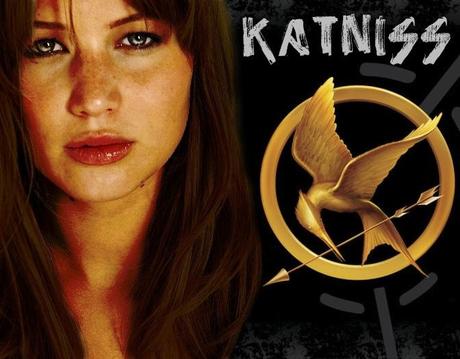
awesome: but why is she the exception rather than the rule?
Joss Whedon (creator of Buffy the Vampire Slayer, Firefly, and many more) was once asked “Why do you write such strong female characters?”
His reply?
“Because you’re still asking me that question.”
So, why are we still asking that question?
Lately, “strong female characters” in fiction seem to be on the rise. Hermoine Granger. Lisbeth Salander. Katara. River Tam. More recently, Katniss Everdeen and Merida from The Hunger Games and Pixar’s Brave, respectively. My question is, why are these characters such a big deal? Why is it still a surprise to people that women in fiction can be action heroes, no questions asked? And furthermore, when a “weak” female character comes along (first one that comes to mind is Bella Swan from Twilight) why are we so quick to tear into her?
Not that I’m a huge fan of Bella, but here’s the thing: there are strong male characters. There are plenty of weak male characters, too. What’s so bad about having both strong and weak female characters?
It’s called the Smurfette Principle, for you TV Tropes fans out there. Remember those TV shows growing up, where there were four guys and one girl in a group of friends? Or maybe it was two guys and a girl, or, if the writers were feeling generous, three guys and two girls. There’s always a tiny ratio of females to males, which means that the “Smurfette” ends up representing all women, or, if there were two, a dichotomy of stereotypes which represent all women. The tomboy and the girly-girl, for example. You’re either one or the other.
Which brings us the answer to the question. When we see a weak female character, the first reaction we ladies have is “She’s making us look bad!”
Well, I have to agree. But it’s not the character’s fault. It’s the lack of other characters who lack a Y chromosome, and the expectation that we have that every female character out there represents all women. But as the number of female protagonists and ensemble characters rise (and I say “rise” tentatively), we need to trash those expectations.
We need to allow both strong and weak female characters to exist without tearing apart their every move. People in fiction are still people, aren’t they? Detective Kate Beckett from the television show Castle saw a therapist for her PTSD (after getting shot, mind you), and I’m ashamed to admit I asked myself if I still considered her strong. Of course she’s still strong. She’s just human. Which is a depiction we’re honestly not used to.
So stop asking the question, and please stop making a huge deal out of every Katniss Everdeen that comes along. Don’t get me wrong, she and others like her are awesome. But by calling so much attention and awe to these people, we invite the notion that women shouldn’t be depicted as strong, that something about this is weird. And it’s not weird.

